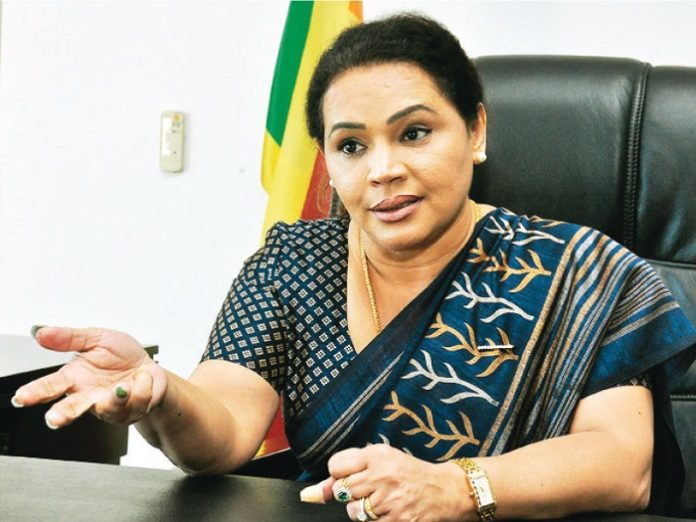In a significant legal ruling, the Supreme Court of Sri Lanka pronounced on Wednesday that State Minister Diana Gamage is not legally qualified to hold a parliamentary seat. This decision, delivered by a three-judge bench, marks a pivotal moment in the ongoing debate over eligibility criteria for parliamentary membership in the country.
The genesis of this legal saga can be traced back to a petition filed by social activist Oshala Herath, who contested the validity of Diana Gamage’s parliamentary membership on the grounds of her holding dual citizenship. Despite an earlier dismissal of Herath’s petition by the Appeals Court, he persisted in his pursuit for justice, eventually leading to the Supreme Court’s verdict.
The crux of the matter lies in the constitutional provision that prohibits individuals holding dual citizenship from becoming Members of Parliament in Sri Lanka. This provision is aimed at ensuring undivided loyalty and allegiance to the nation’s interests among its lawmakers. However, the interpretation and application of this provision have been subject to debate and contention over the years.
Diana Gamage’s case underscores the complexities surrounding citizenship and its implications on political office. While her supporters may argue that her dual citizenship does not inherently disqualify her from serving as a parliamentarian, the legal verdict has unequivocally affirmed otherwise. In the eyes of the law, her dual citizenship status renders her ineligible for the esteemed position of a Member of Parliament.
Beyond the individual implications for Diana Gamage, this ruling raises broader questions about the integrity of the electoral process and the adherence to constitutional mandates. It prompts a critical examination of the mechanisms in place to vet and verify the eligibility of candidates for public office. The judiciary’s role, as evidenced in this case, becomes paramount in upholding the sanctity of democratic principles and constitutional provisions.
Moreover, the fallout from this verdict extends beyond the confines of parliamentary membership. It casts a shadow over the efficacy of dual citizenship regulations and the enforcement thereof. In a globalized world where individuals frequently hold multiple citizenships, ensuring compliance with constitutional provisions becomes increasingly challenging yet imperative.
For Diana Gamage, this ruling represents a personal setback in her political career. It necessitates her immediate resignation or removal from the position of State Minister, as she no longer holds the prerequisite parliamentary seat. The vacancy created by her departure underscores the need for swift and transparent processes to fill such positions and maintain the functional integrity of the government.
In conclusion, the Supreme Court’s decision regarding Diana Gamage’s parliamentary membership sends a clear message about the inviolability of constitutional provisions and the rule of law. It serves as a reminder that no individual, regardless of their stature or influence, is above the foundational principles of democracy and governance. Moving forward, it is incumbent upon all stakeholders to uphold these principles and ensure the integrity of the electoral process for the collective benefit of the nation.


